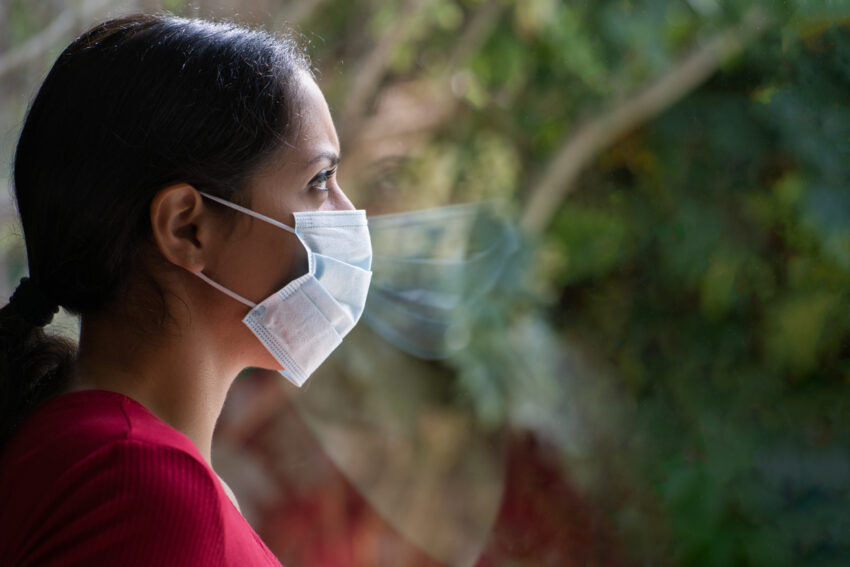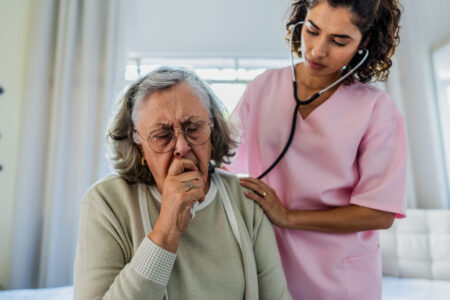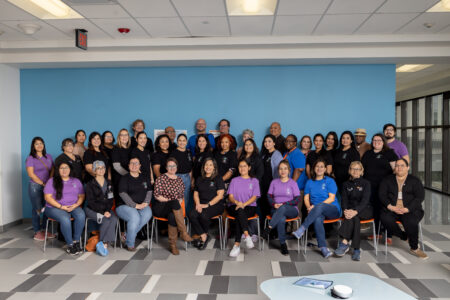
Share On Social!
The National Institute of Health (NIH) Office of Research on Women’s Health is seeking comments on how to improve treatment for the intersection of women’s health and COVID-19.
COVID-19 has impacted all women, but Latinas have been consistently at high risk.
Not only has the disease disproportionately hit this population, but it also has caused delays in screenings and care for other women’s health issues.
Responses will be accepted through Friday May 6, 2022.
Update 5/20/22: 10 women submitted comments. See a sampling of comments below.
Comments Submitted by Women via Salud America!
Here are a few comments submitted to the NIH Office of Research on Women’s Health:
- “I had Covid in December with pneumonia. I was in bed for two and a half weeks and thought I was going to die. This was after being boosted 2 months earlier. Now I’m having long Covid where I can’t sleep I have terrible insomnia. I’ve never had that before. I’m doing ketamine treatments now that are costing me thousands and they are horrible. But I cannot sleep, it brought out PTSD depression and insomnia.”
- “Continuous work. No child care, unable to get health care for myself. Stress. As a health care provider preaching health continuously, unable to get to one myself adds to the stress of daily life.”
- “I am a COVID survivor from 2020. My hair started thinning very quickly 3-4 months after I had Covid. It has come back in. I also search for words occasionally. Those are the only two long term symptoms that I have noticed.”
How COVID-19 Has Impacted Latina Health
COVID-19 can affect anyone, but data shows Latinos and other people of color are disproportionately affected.
Latinos currently comprise 25.1% of COVID-19 cases in the United States, second only to white people –(53.4%), according to CDC data on health equity and cases on March 16, 2022. Race/ethnicity data is available for 65% of the nation’s cases.
Latinos are also behind in booster shots and experience higher rates of COVID-19-associated hospitalizations.
Pregnant Latinas also have lower COVID-19 rates than others, which puts them at higher risk for illness.
In addition to the impact that COVID-19 has had on cases and deaths in the community, the pandemic has also led to a decline in cancer screenings.
This is important as Latinas experience breast cancer and cervical cancer at higher rates than other groups.
Breast cancer is the leading cause of death in Latinas. While breast cancer death rates have declined in recent years, the rate of decline among Latinas is lower (1.1% per year) than their white peers (1.8% per year).
Cervical cancer, which is preventable through screening and vaccination, is 32% higher among Latinas in the 50 U.S. states and 78% higher in the U.S. territory of Puerto Rico, compared to non-Latina white women.
Delaying cancer screening can have poor health consequences and increase cancer inequities.
You can speak up about Latina health by submitting your comment to NIH!
Explore More:
COVID-19By The Numbers
142
Percent
Expected rise in Latino cancer cases in coming years



